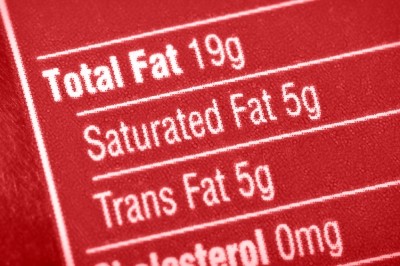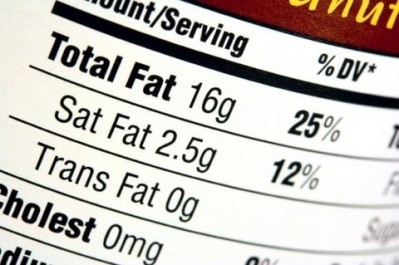Time to cap trans fats in Europe, ENVI politicians tell Commission

The members of the Committee on the Environment, Public Health and Food Safety (ENVI) backed the draft motion for a resolution at a vote this morning.
It reads: “[The European Parliament] believes that the lack of awareness among consumers regarding the adverse health impact of trans fatty acids (TFAs) makes mandatory TFA labelling an ineffective tool in the attempt to reduce intake among European citizens.
Trans-fatty acids occur naturally in ‘ruminant’ food sources, from cows and sheep for instance, but in such small levels they are not considered to pose a health risk.
Industrially-produced or artificial trans fats come from partially hydrogenated oils. Made by adding hydrogen to vegetable oils, these favoured by industry for their long shelf life, stability during processing and the fact they are solid at room temperature, but contain high levels of trans fats.
A 2009 EFSA opinion said trans fat intake should be “as low as possible”.
They have been linked to cardiovascular disease which, according to the European Society of Cardiology (ECS), causes 47% of all deaths in Europe, or over 4 million deaths each year.
“[We] call on the Commission to propose as soon as possible mandatory limits on industrial TFAs in order to reduce their intake amongst all population groups.”
The resolution also asks the Commission to collaborate with member states to increase nutrition literacy in Europe, and to engage with the industry to encourage the healthy reformulation of their products.
ENVI politicians cited evidence from Denmark's introduction of 2% legal limit 2003 and was successful in significantly reducing deaths caused by cardiovascular disease.
The draft resolution will now be considered for adoption by the European Parliament at a plenary session in October.
Ilaria Passarani, head of food and health at European consumer group BEUC, said it was reassuring to see Parliament urge the Commission to legislate.
“Setting an ambitious EU-wide target is indeed the only way to protect all consumers, wherever they live. Trans fats should not even be in our food in the first place. [...] They increase the risk for heart disease and are easily replaceable.
“All companies, whether big or small, should commit to removing trans fats from their foods. Granting special status to SMEs is therefore not an option,” she added.
Progress has been made in reducing the use of artificial trans fats through voluntary efforts in Western Europe, but they remain common in Eastern Europe.
A 2012 study which analysed biscuits, wafer, microwave popcorn and fast food items showed that some Eastern Europeans could be consuming as much as 30 g per day.
Industry support
Public health and consumer groups have long campaigned for regulators to limits European’s intake of trans fats by placing a cap on trans fats originating from partially hydrogenated oils, and last year they were joined by four major food companies, Mars, Kellogg’s, Mondelēz and Nestlé, in
signing an open letter sent to the European Commission which asked it to cap levels to 2 g per 100 g of fat.
Lobby group FoodDrinkEurope has said it supports setting a 2% maximum limit of industrial trans fats of the total fat content of the final product, however it warns:
"Should policy-makers prefer the option of setting legislative limits, this should be intrinsically coupled with the deletion of the current obligation to label full/partial hydrogenation prescribed by Regulation 1169/2011, as such labelling would then become redundant.
"Moreover, evidence indicates that consumers do not understand the difference between full or partial hydrogenation, and ignore the fact that full hydrogenation leads to very low levels of trans fatty acids contrary to partial hydrogenation."
Industry and campaigners are still waiting on an overdue Commission report on trans fats.








